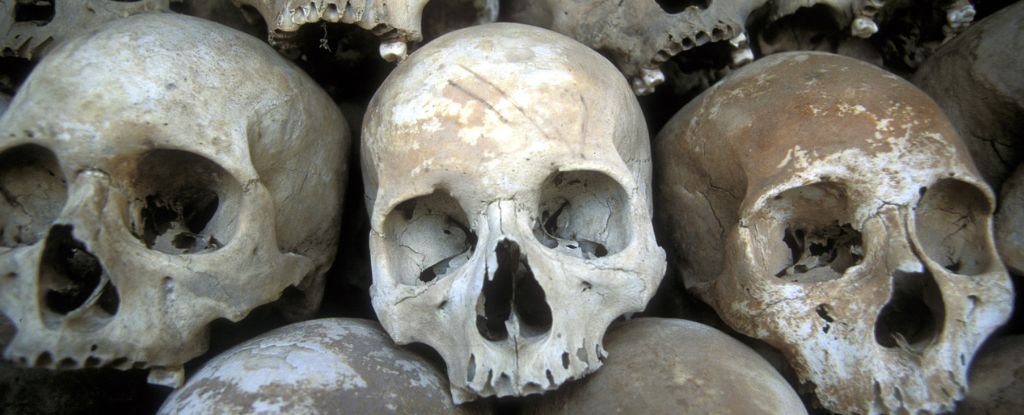Products You May Like
Humans take a lot of pride in their brains. We like to think we are an intelligent species, and even though size isn’t everything, our noggins are some of the largest nature has to offer.
The idea that our brains are shrinking is not one we like to consider. For more than four decades, experts have mostly ignored the hypothesis put forward time and time again by a close-knit group of paleontologists.
Now, the brain shrinkage hypothesis is being put to the test once more, with a team from the University of Nevada, Las Vegas (NLV) saying it doesn’t stand up to scrutiny.
The debate really kicked off last year when a paper by paleoanthropologist Jeremy DeSilva and his colleagues, based on a comparison of human fossils to evolutionary patterns in ant colonies, popularized the idea that the human brain had shrunk in volume by about four ping pong balls.
What’s more, they claimed this happened just 3,000 years ago.
That’s really recent compared to other theories. Some scientists have said human brains started shrinking sometime after the last ice age, which ended about 11,700 years ago.
DeSilva’s paper positioned the loss in brain size right around the time that complex human societies arose.
As such, it was suggested a smaller brain developed because information could now be stored in writing or distributed among others in a community.
Our brains, in other words, didn’t become dumber; they grew more efficient.
The appealing theory gained worldwide attention, but not everyone was convinced. And the team from UNLV now claims to have uprooted the whole idea.
“We re-examined the dataset from DeSilva et al. and found that human brain size has not changed in 30,000 years, and probably not in 300,000 years,” says UNLV anthropologist Brian Villmoare.
“In fact, based on this dataset, we can identify no reduction in brain size in modern humans over any time period since the origins of our species.”
The findings are based on a new analysis of fossilized skulls, put together by Villmoare and his colleagues, which differs from the DeSilva paper in several important ways.
Of all 987 skulls analyzed by DeSilva and colleagues, only 23 actually come from the timeframe that is critical to their brain shrinkage hypothesis. The dataset in the new study is much narrower to avoid skewing the results. It focuses on modern humans from the last 300,000 years only.
That’s because researchers at UNLV are not convinced all nearly 10 million years of early human history is relevant to an event that supposedly occurred 3,000 years ago.
Even in the last 300,000 years, most of the human fossils included in the UNLV analysis were dated within the last 10 percent of the time series. Older fossils are simply harder to find.
To compensate for this unbalanced comparison, researchers honed in on human cranium fossils from the last 30,000 years specifically, which created a more normal distribution.
Using DeSilva’s same methods on the newly honed dataset, researchers found no significant change point in human cranium size at or near 3,000 years ago.
“Overall, our conclusion is that, given a dataset more appropriate to the research question, human brain size has been remarkably stable over the last 300 [thousand years],” Villmoare and colleagues write.
“Thus, hypotheses of recent change are not supported by the evidence.”
DeSilva and colleagues have not yet responded to the recent criticism, but there’s little doubt they will have something to say. In 2021, the authors said they hoped others would put their hypothesis to the test.
They certainly got what they wished for.
The new study was published in Frontiers in Ecology and Evolution.
